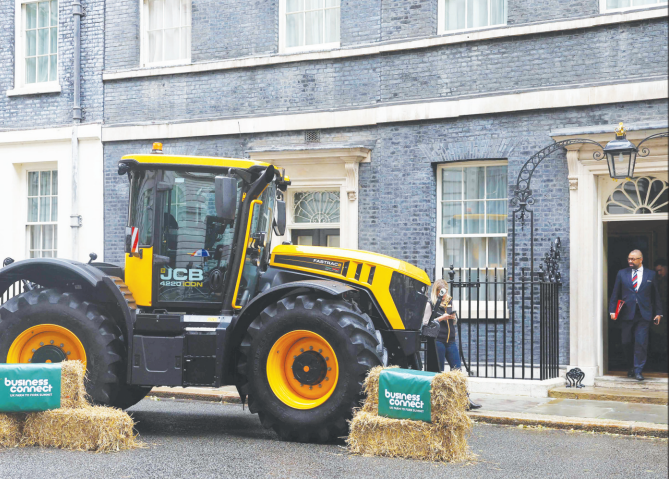British farmers warn of bitter harvest
Finances, politics and a cultural divide push the agriculture sector to the brink and stir up anger.


Harsh reality
Brexit cheerleader, former prime minister Boris Johnson said "our amazing food and farming sector will be ready and waiting to continue selling ever more, not just here but around the world", and "we will have a historic opportunity to introduce new schemes to support farming — and we will make sure that farmers get a better deal".
But it took five years for the CAP alternative, known as environmental land management schemes, to be introduced, and there have been complaints that it is unduly harsh on smaller producers.
Since the Brexit deal was agreed, the EU remains Britain's biggest agricultural export market, but farmers are selling less to it than before, and the process of doing so is more complicated and costly.
In 2022, the EU accounted for 67 percent of the value of sales, down from 70 percent in 2019, with the total value of food and live animal exports to the EU 5.9 percent down for the same period.
Between 2019 and 2022, dairy products and birds' eggs exports to the EU were down 20 percent, meat exports fell by 24 percent, and fruit and vegetables fell by 25 percent, with factors such as newly-required paperwork adding to the reasons. One of the supposed Brexit freedoms was the ability for Britain to negotiate its own trade agreements, rather than being part of EU-wide ones. But a deal with the United States, confidently predicted since 2016, has still not happened.
Britain has swapped being part of a trading bloc with 27 neighbors for the 11-member Comprehensive and Progressive Agreement for Trans-Pacific Partnership, meaning it can send fresh produce to Malaysia rather than Munich, to Peru rather than Paris, and Vietnam rather than Vienna.
The first new trade deal, with Australia, was forecast to add just 0.08 percent to the UK's GDP during the next 15 years, with the government's own impact assessment saying there was the "potential for the deal to result in lower output for some agricultural sectors" because Australia is a "large, competitive producer of agricultural products".
Liz Webster lives on a 607-hectare mixed arable and cattle farm in Wiltshire and is the founder of Save British Farming.
She said a social disconnect dating back to the Industrial Revolution — also, coincidentally, part of the 2012 opening ceremony — means that for generations, urban Britain has failed to understand how rural Britain functions, and it has now reached breaking point.
"People's identity is linked to what this country looks like, and the green and pleasant land everyone loves looks how it does because of how it's been farmed for thousands of years," she explained.


















